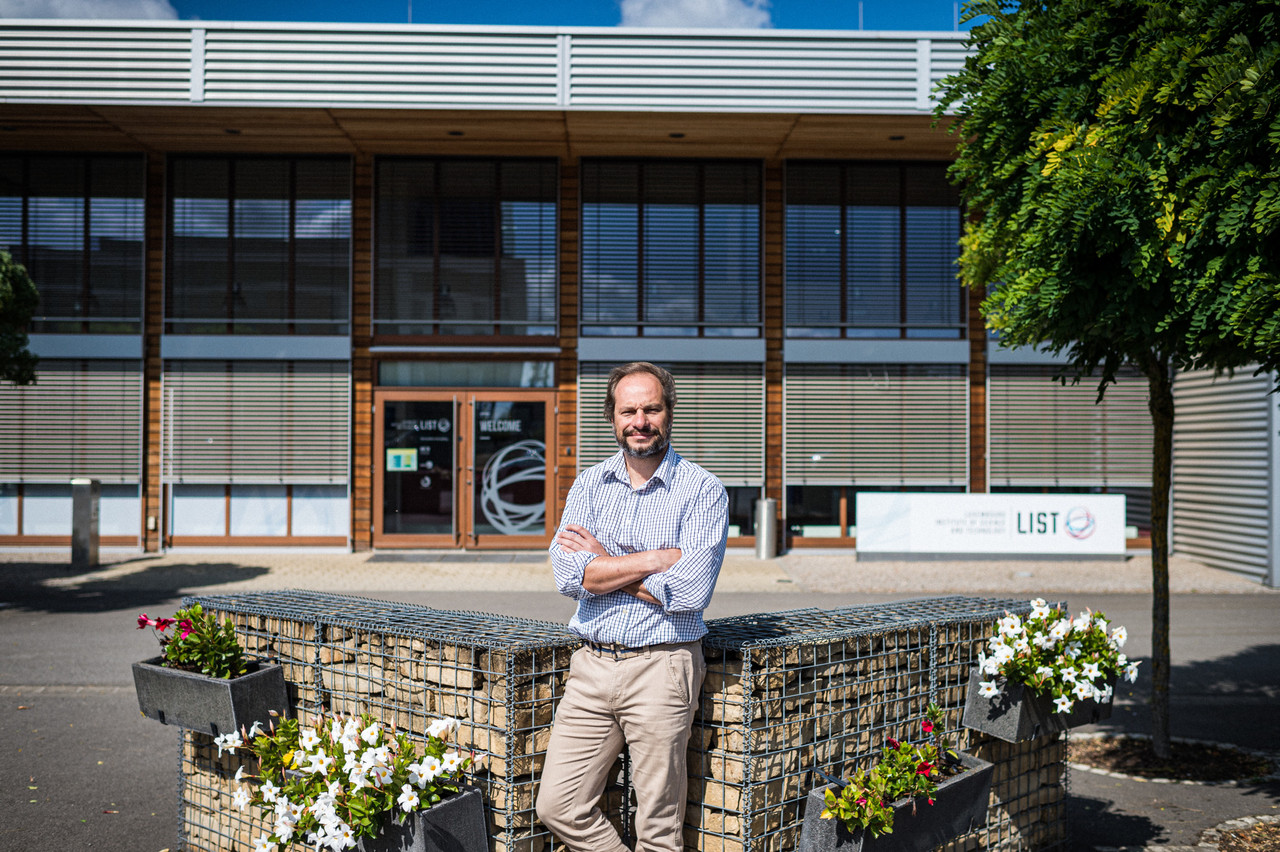How long have you been working in Belval?
Actually, I’ve been here since 2009. I think this research building [editor’s note: the LIST’s container site on rue du Brill where the interview was taking place] was one of the first research buildings really set on the Belval site. So, from my window, I’ve basically seen most of the buildings that have been built since 2009.
Wait--this container building was here in 2009?
Yes, it’s from 2007 or 2005… I don’t remember exactly. I wasn’t there.
Whoa.
It’s funny: the only massive building that existed in Belval at that time [in 2009] was the red tower, which deals with finance--and now it’s the only building that doesn’t deal with research and innovation. So I’ve seen most of the transformation of the neighbourhood. And it’s fair to say that it’s quite impressive, what Luxembourg has achieved here, in particular the fantastic renovation of the blast furnaces. It’s been really thought-through and well-implemented. The country can be very proud. The underlying idea, I think, was to match what we’re building for the future at the university and research centres with the industry or legacy of the country. The story resonates a lot when we have researchers or scientists visiting us--they are all impressed.
Having seen so much change from your window, are there any moments from the last decade that stand out?
One stressful moment that stands out is now! Because the construction is coming closer and closer to our research building, and we have extremely sensitive research equipment here. We’re using high-end transmission electronic microscopy, and that kind of equipment requires an environment with no vibration at all. From time to time, our researchers see [in their data] vibrations linked to the construction next door. When the buildings were being constructed 200 or 300 metres from here, it was OK; but now we really feel the impact on our research activities. Sometimes you can lose one full day because of this.
So, yes--this is supposed to be a temporary building, well-built but temporary, so we’re really eager to move to a building fully engineered for our research needs.
What are some good places to eat in Belval?
For lunchtime, I have two favourite restaurants. One is Nonna Nenetta, which is Italian. They change the menu every day and it’s like going into a family canteen. And the food is quite, quite good. From time to time we collaborate with Italian companies, and one day [when they were visiting] I took the risk of bringing them there--that’s really the crash test!--and basically they told me: “That’s what we have at home.” So that’s good.
And for a special lunch, I would go to Nonbe. It’s fantastic Japanese food and, perhaps, even the best in Luxembourg.
How about for drinks?
I used to go with a colleague to the MK Bar, which is on the Avenue du Swing… for the simple reason that they have a babyfoot table [editor’s note: foosball]. When I was younger I used to play quite often. It’s also very relaxed. It’s fair to call it a student bar, so maybe I’m a bit too old for it… but that just reminds me of the atmosphere I used to appreciate!
For a bar offering more advanced cocktails, I like to go to Copper’s. I think they make the best cocktail on the Belval campus.
And finally there’s a small coffee shop. I’m a coffee addict, I have to admit, and the coffee from the machine isn’t so good, you know--so from time to time I go to K’fé, who are doing (from my perspective) the best espresso in Belval.
The university is here, but would Belval be a good place to be a student?
We have a lot of PhD students and the majority of them live nearby, and they are quite happy with Belval. But… they mention a lack of nightlife. Most of them go into Luxembourg City for their nightlife, so that may be a consideration if you really wanted to make Belval into a university campus. Well, [laughing] it’s--that’s at least the remark I have from the students in the department, that it’s a bit too quiet in the evenings.
Thanks for your time, Damien.
Thank you!
